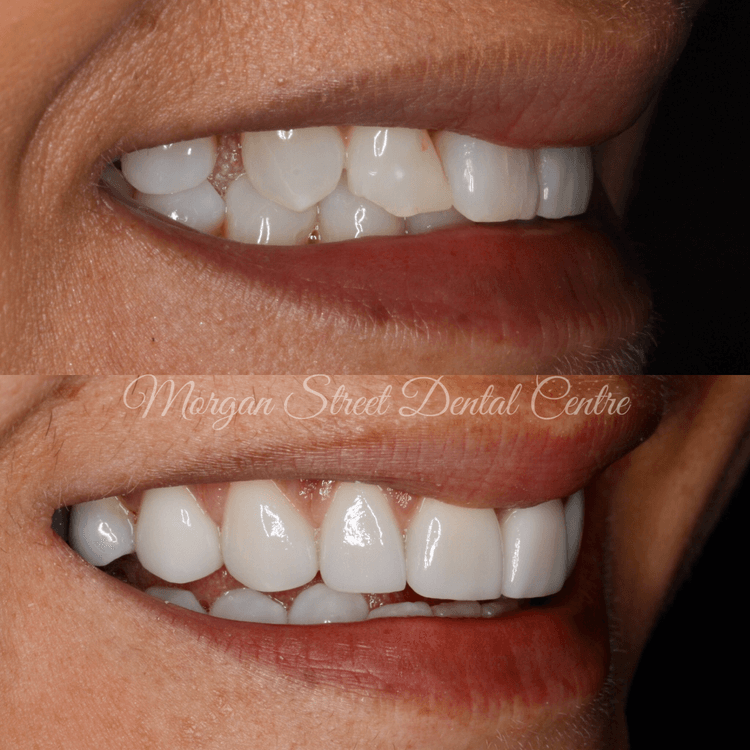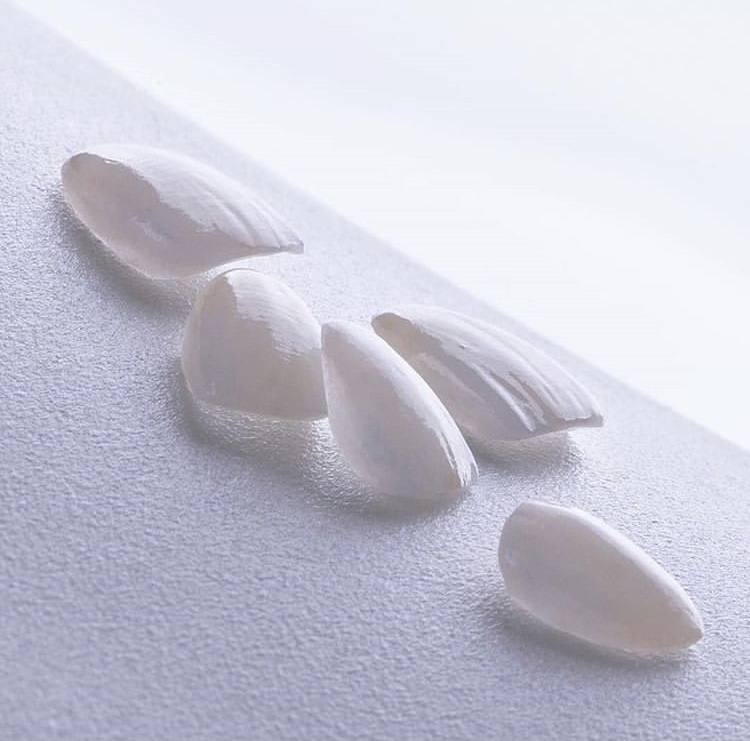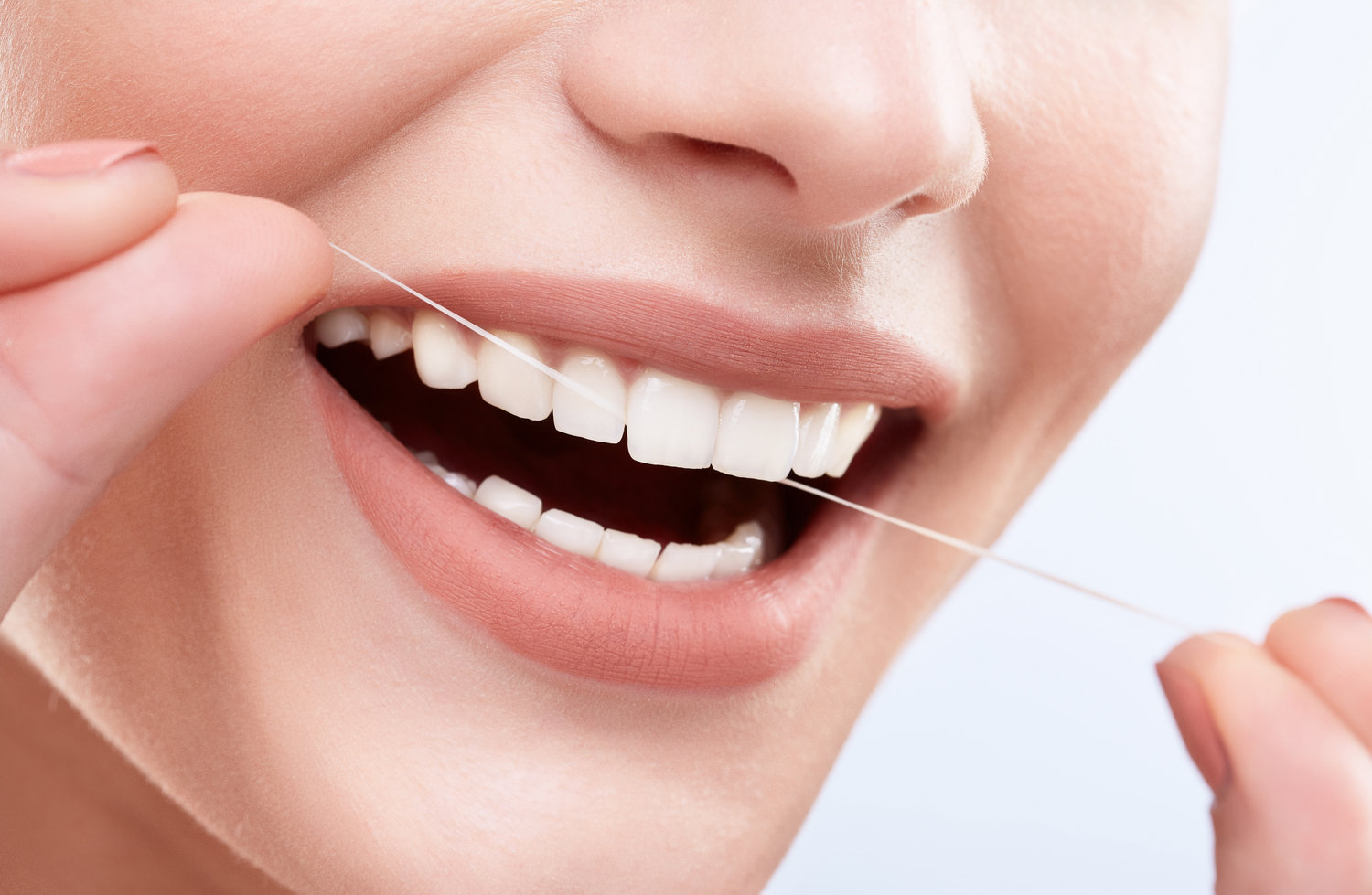
Porcelain veneers are thin, tooth-coloured shells that are attached to the front surface of teeth to improve their appearance. They are permanently bonded to your teeth.
Porcelain veneers can be used to treat a number of different cosmetic concerns, including chipped, broken, discoloured, or smaller-than-average teeth.
Some people may only get one veneer in the case of a broken or chipped tooth, but many get between six to eight veneers in order to create an even, symmetrical smile. The top front eight teeth are the most commonly applied veneers.
What Are The Advantages of Porcelain Veneers?
The biggest benefit of porcelain veneers is improving the appearance of your teeth, giving you a brighter and more even smile. Dental veneers are often used to treat the following cosmetic occurrences:
- broken or chipped teeth
- severe discoloration or uneven coloring that can’t be fixed with whitening
- gaps in the teeth
- smaller-than-average teeth
- pointed or unusually shaped teeth
With the advancement in technology, porcelain veneers can last for more than a decade, making them a semi-permanent investment that can make you more confident in your smile.
How Are Porcelain Veneers Made?
Before you get your veneers, you’ll have a preliminary appointment with your dentist to discuss which options are right for you and how many veneers you want to have placed. In some cases, if teeth are crooked or uneven, you may need to have braces before your dentist can place the veneers.
Your dentist will often take X-rays at this stage to evaluate your teeth’s health. They’ll look for signs of tooth decay, gum disease, or the need for root canals. If you have any of these conditions, you may not be a candidate for veneers.
To get accurate sizing for your veneers, at the next appointment, your dentist trims down about a half a millimeter of your tooth (they remove the enamel using a grinding tool) before they take a digital scan of your teeth. This digital scan is then sent off electronically to the lab for the creation of your veneers. Your teeth models and final porcelain veneers are then fabricated using the latest 3D printing and milling technology.

How Are Porcelain Veneers Put On Teeth?
It typically takes between two and three weeks after your dentist prepares your teeth to get your porcelain veneers back from the lab.
Once your veneers are in, you can schedule an appointment to have them placed. At this appointment, your dentist evaluates the fit, shape, and coloration of the porcelain veneers to make sure they’re perfect for you.
Next, your dentist thoroughly cleans your teeth. This is important, as it keeps bacteria from being trapped under the veneer and causing decay. After they do this, they use the grinding tool to create a rougher texture on each tooth on which a veneer is to be applied. This makes it easier for the veneer to stick to the tooth.
Your dentist then uses a dental cement to bind the veneer to the tooth. They’ll use LED light to harden this cement quickly, and once you leave the office, your new smile is ready to go!
This second appointment (where porcelain veneers are placed) typically doesn’t last longer than one hour, though it might be an extra thirty minutes if a local anaesthetic is used.

How to Take Care of Your Porcelain Veneers After They Are Placed
Unlike other dental procedures, the recovery process doesn’t take an extended amount of time. Instead, once the veneers are cemented on and any anesthetics wear off, you can eat and chew as you normally would. While the anesthetic is wearing off, be conscious of not chewing on your cheeks or tongue.
In some cases, immediately after the veneers are applied, you may notice that they feel a little rough. These rough spots (usually from extra cement that can adhere to the veneer) wear down after several days of normal eating and teeth brushing; if they don’t, your dentist can smooth them out.
Statistically, porcelain veneers typically last between 10 and 15 years. Taking certain precautions can help make sure that you get the longest lifespan out of them possible. These precautions include:
- Don’t chew on hard objects like pens, ice, or your finger nails.
- Never use your teeth to open packaging or condiment packages.
- Try not to chew with your front teeth. Eat harder foods with your back teeth only; cut up hard foods like chocolate bars so that this is possible.
- If you grind or clench your teeth at night, get a splint or retainer to protect your veneers.
- If playing sports, you must wear a mouth guard.
- Your new teeth will look and feel natural. They must be cared for with daily brushing and flossing. No special materials are needed to clean them. You can treat them the same way you treat your natural teeth.
Make sure to also see your dentist for regular checkups.
Talk To Us
If you would like to know more about porcelain veneers, please call us or book a consultation with our friendly dentists today. It is important to get your mouth properly assessed to make sure your teeth are suitable for veneers. We will discuss all available options, helping you make a choice that benefits your smile and oral health.
